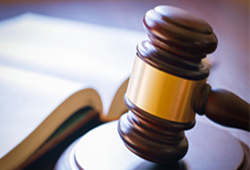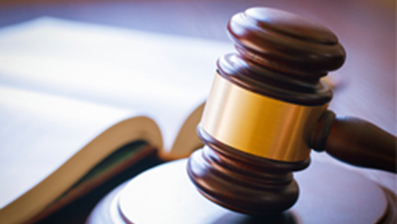 We have recently reported on multiple discovery rulings in the ongoing AbbVie v. Boehringer Ingelheim litigation concerning Boehringer Ingelheims’s (“BI’s”) aBLA for Cyltezo™ (adalimumab-adbm), a biosimilar version of AbbVie’s Humira® (adalimumab) product. On June 14, 2018, Magistrate Judge Lloret issued two additional opinions regarding discovery in the case.
We have recently reported on multiple discovery rulings in the ongoing AbbVie v. Boehringer Ingelheim litigation concerning Boehringer Ingelheims’s (“BI’s”) aBLA for Cyltezo™ (adalimumab-adbm), a biosimilar version of AbbVie’s Humira® (adalimumab) product. On June 14, 2018, Magistrate Judge Lloret issued two additional opinions regarding discovery in the case.
In the first opinion, the Court granted-in-part and denied-in-part BI’s motion to compel AbbVie to produce an unredacted version a slide presentation, titled “Humira IP Discussion.” The slide presentation was previously clawed-back by AbbVie during the litigation because AbbVie asserted attorney-client privilege over the presentation. AbbVie later produced a redacted version of the slide presentation that removed references to “AbbVie’s intellectual property strategy for Humira, including breadth and strength of potential patent claims and claim types as well as patentability of such claims.” BI argued that the redacted slides are not subject to the attorney-client privilege because “[t]here is no indication that the Humira Presentation was made between privileged persons in confidence for the purpose of obtaining or providing legal assistance for AbbVie.” BI instead argued that the slides relate to “AbbVie’s business strategies” and are not covered by attorney-client privilege. The Court analyzed each slide individually and ruled that six of the slides must be produced in unredacted form, two of the slides could remain redacted, and three of the slides must be produced partially unredacted with redactions the Court outlined in the opinion.
In a second opinion, the Court granted BI’s motion to compel AbbVie to run additional searchs pursuant to Paragraph 5(b) of the Delaware Default Standard for Discovery (“DDSD”). After AbbVie produced documents, BI requested that AbbVie search for documents using ten additional search terms, as provided under DDSD 5(b). AbbVie argued that it had already produced over 8 million pages of documents, based on “over 100 broad, comprehensive search terms,” and so the additional ten search terms were overly burdensome. AbbVie also argued that the ten additional terms were “generic scientific terms and will return large volumes of irrelevant information.” BI argued that the additional terms are not generic, but picked from the language in the AbbVie patents-in-suit. The Court ruled that under the DDSD ESI protocols BI had the right to add ten additional terms to AbbVie’s search because BI’s additional “search terms are chosen from language contained in the patents-in-suit, employ reasonable search limitation strategies, and appear to be reasonably focused.” The Court also ruled that BI’s search terms comply with the more general requirements of Fed. R. Civ. P. 26(b)(1) because “[t]hey are reasonably relevant to the claims and defenses in the case, and proportional to the needs of the case.”

